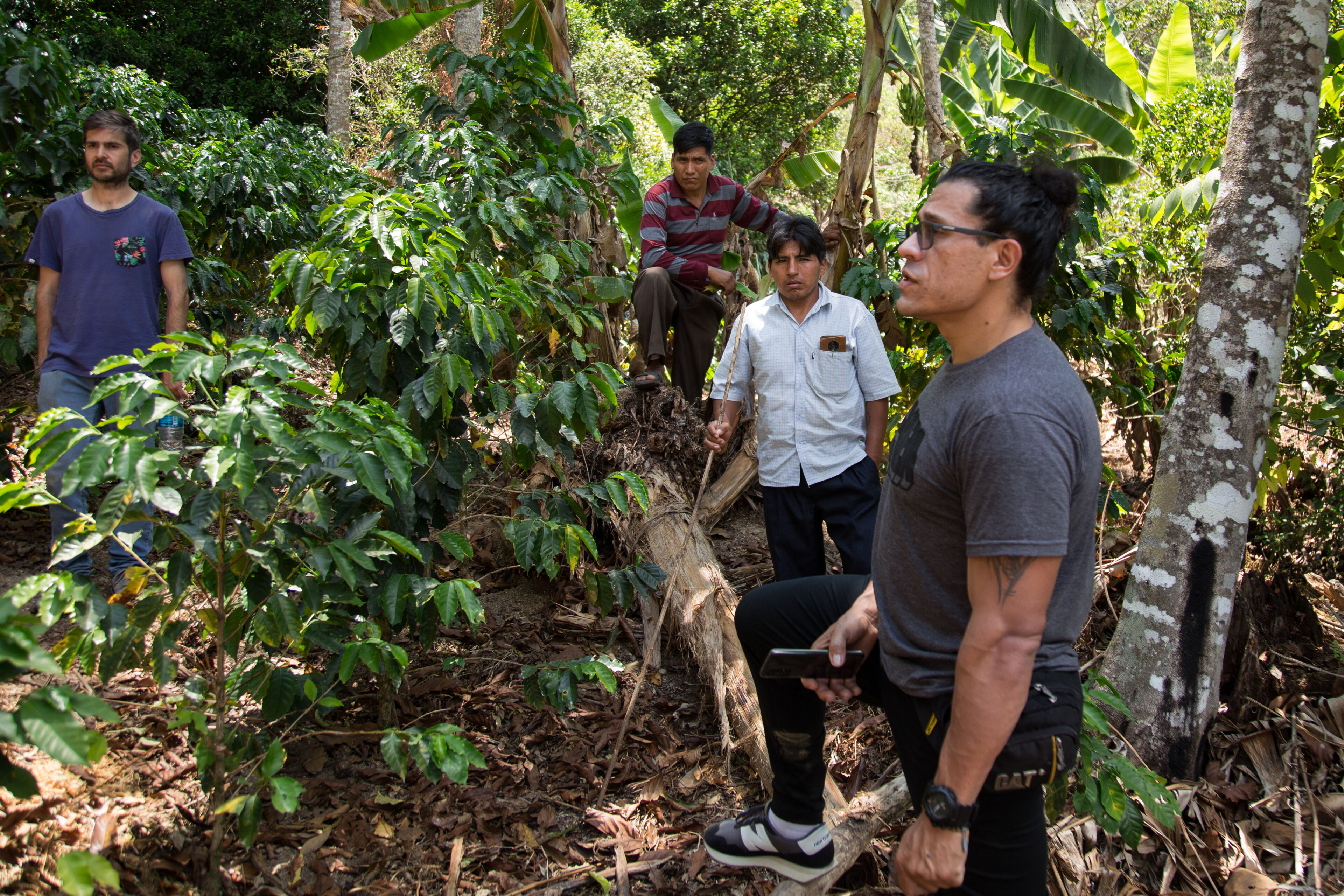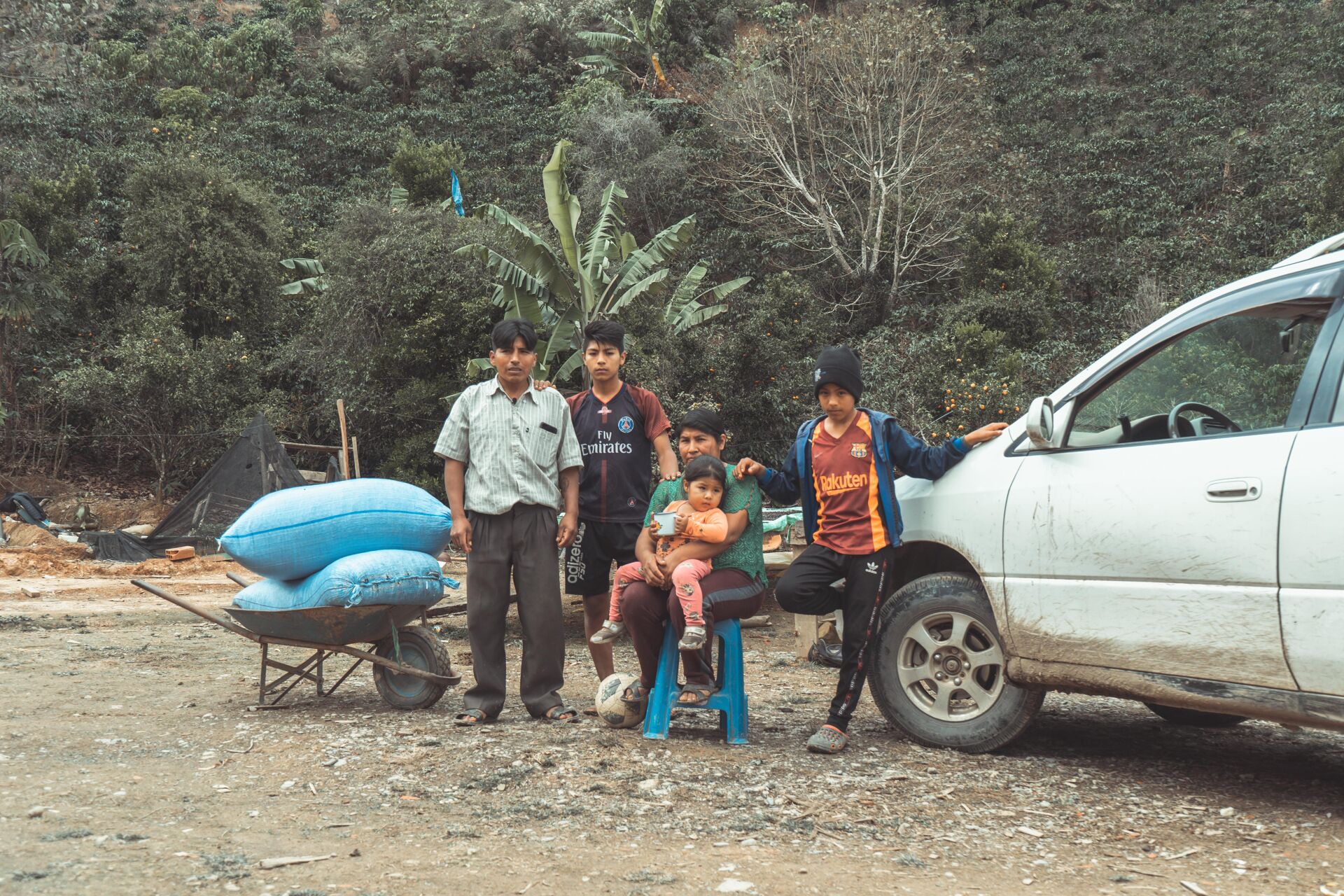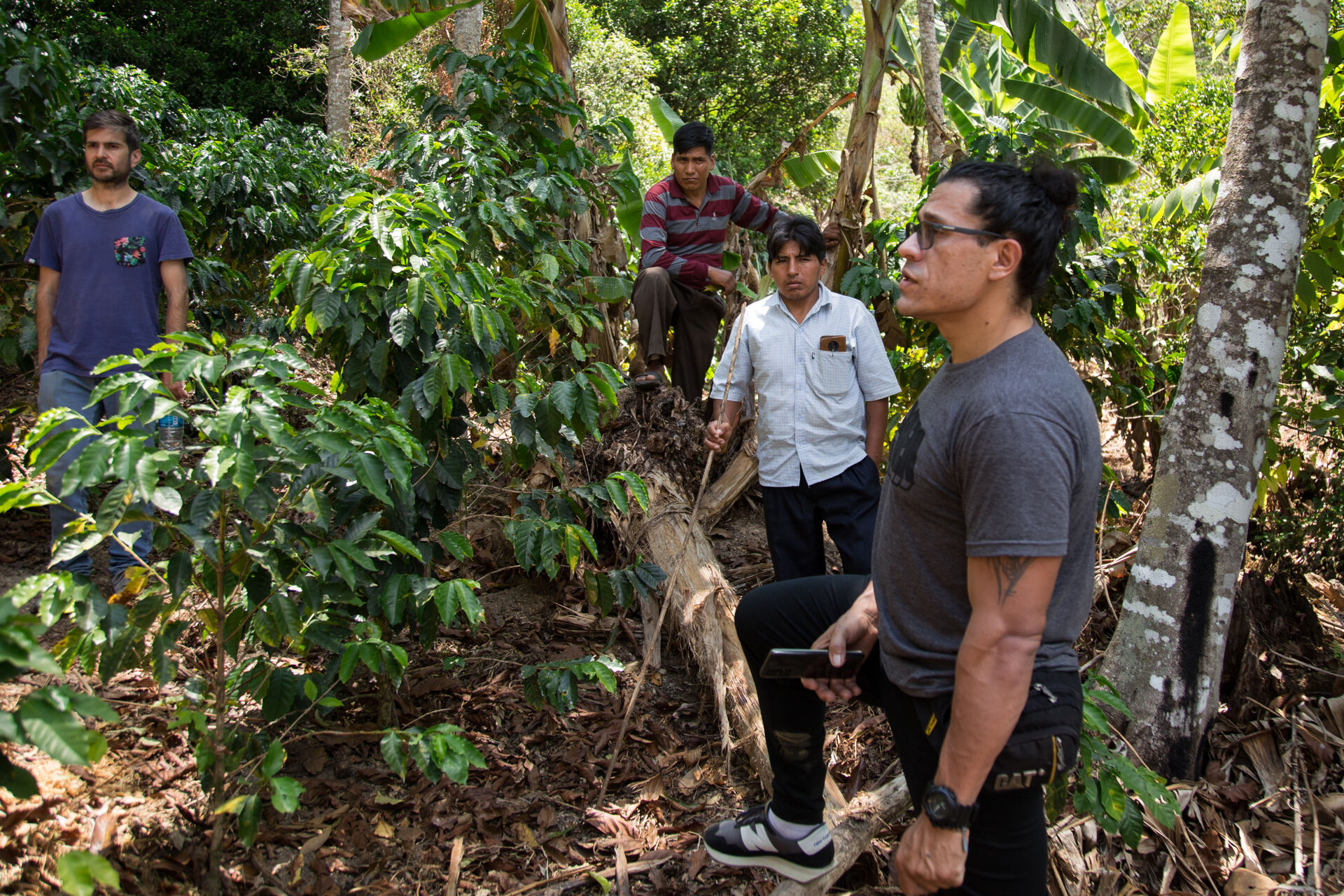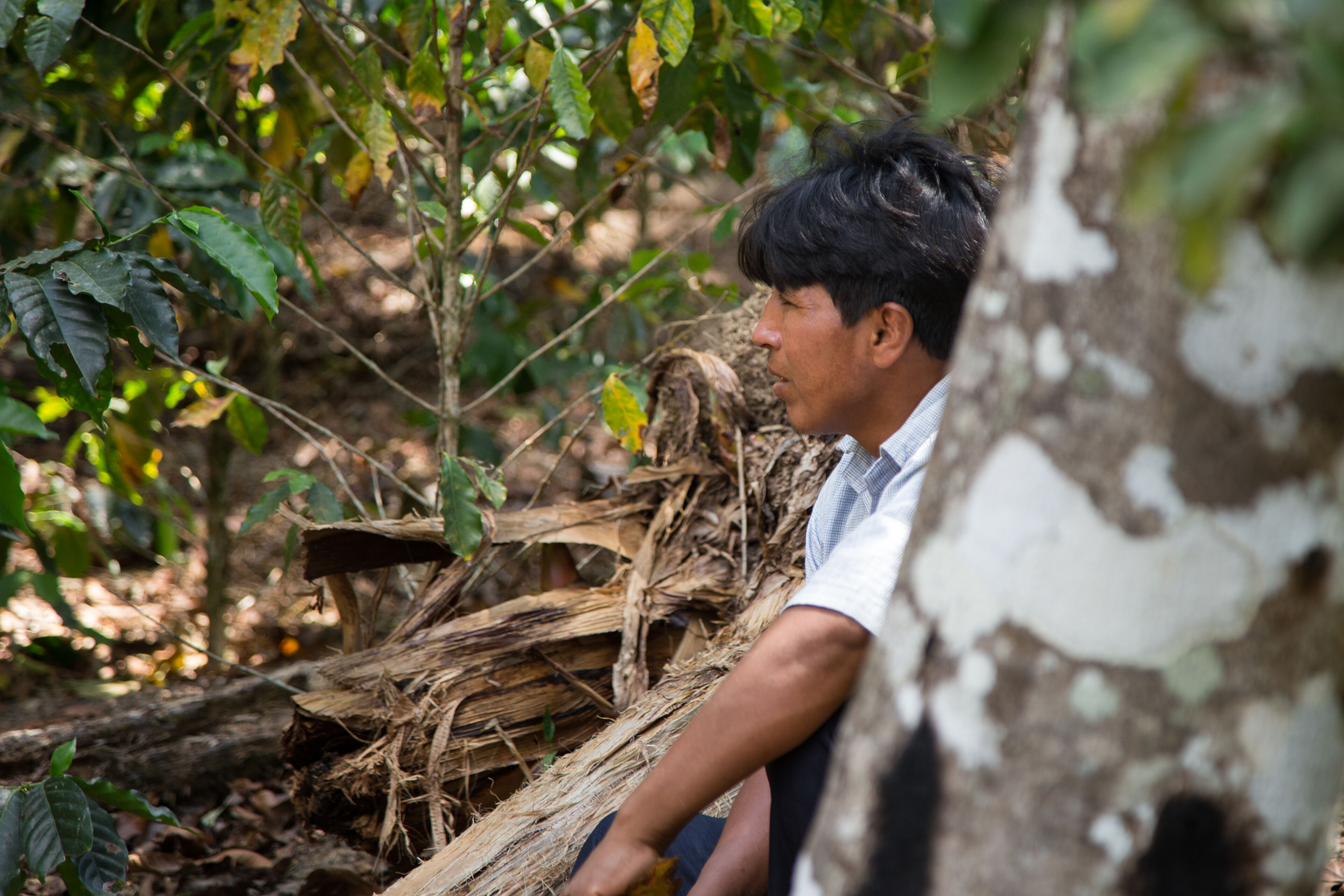Nicolás Colque's farm is located in the Kollasuyo Community, in the Carrasco La Reserva Canton, in the Caranavi Province, Bolivia, at an altitude of 1,650 meters above sea level. With 4 hectares of coffee grown on a 16-hectare property, he cultivates the Catuai Rojo variety and the process of processing is Natural. The road to Nicolás Colque's farm in the Kollasuyo Community of the municipality of Caranavi, in the department of La Paz, Bolivia. It is dirt and gravel, winding through mountains and valleys covered with vegetation. During the rainy season, it can become slippery and muddy, while in the dry season, dust is kicked up by passing vehicles. As you approach the farm, the landscape fills with coffee crops under the shade of trees, with breathtaking views of the mountains and clouds that often cover the peaks in the morning. The farm, surrounded by native vegetation, offers a cool and tranquil environment, ideal for coffee production. The “La Envidia” farm has been part of the family's legacy for over 50 years, passed down from generation to generation. In its beginnings, the farm was dedicated to traditional crops, but over time, the family decided to take advantage of the exceptional conditions of the area to focus on the production of specialty coffees, a shift that has marked its growth and success.
The name of the farm comes from its owner, who has poured years of effort and dedication into it, making it stand out for its quality and for being a true reference in the region.




